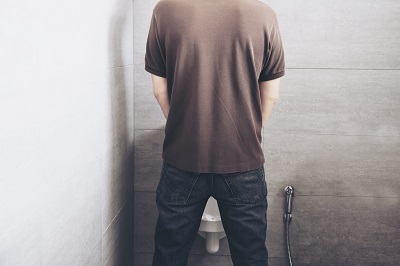Urinary Residue: A Sign of Prostatitis Recovery?
Prostatitis is one of the most common urological diseases in men, and chronic prostatitis is even more common. Patients may experience difficulty urinating, frequent urination, urgency, and painful urination, which can even affect their quality of life. Once diagnosed with chronic prostatitis, timely treatment is necessary.

However, even after treatment, some patients may have residual urine in their urine or even experience new symptoms. So, does this mean that the prostate disease has been cured?
Firstly, we need to know that chronic prostatitis is a chronic disease, and the treatment process requires a certain amount of time, and the course of treatment may be lengthy. Therefore, Even if symptoms alleviate, it does not mean the patient is cured.
Secondly, the discharged residue may be a normal reaction to treating the disease. The pathological changes of chronic prostatitis include the accumulation of prostatic fluid and inflammatory secretions in the prostate ducts, which can condense into concentrated and viscous deposits and form calcified foci within the prostate ducts. During the treatment process, as the inflammation subsides and the patency of the prostate ducts gradually recovers, these substances may be discharged from the body, appearing as residue in the urine.
Thirdly, the appearance of new symptoms does not necessarily mean treatment failure. The prostatitis symptoms result from multiple factors, such as chronic inflammation, local nerve endings, and capillary necrosis in the prostate gland. During the treatment process, reversing these lesions may lead to some new symptoms, but this does not mean that the disease has not been relieved.
So, how can we determine if chronic prostatitis has been cured?
Generally speaking, clinical efficacy should be the primary consideration. If the patient's symptoms are significantly relieved, such as reduced difficulty urinating, urinary frequency, and urgency, and the results of the prostate B-ultrasound examination also show obvious improvements, such as the normalization of indicators like prostate size and echo, it can be preliminarily considered that the patient's disease is under control.
In addition, some special indicators can also be used to evaluate the patient's condition, such as prostate fluid examination and urine flow rate examination. A prostate fluid examination can help doctors judge the recovery of prostate secretion function, while urine flow rate can reflect the degree of relief of urethral obstruction.
It is important to emphasize that recovery does not mean a complete cure, and patients should not let their guard down. Patients need to maintain good lifestyle habits, avoid the impact of bad habits such as smoking and drinking, and undergo regular checkups to promptly detect and treat any disease recurrence.
For patients with chronic prostatitis, the presence of residual urine or the appearance of new symptoms does not necessarily mean treatment failure. Recovery takes time and patience. If a patient's symptoms show noticeable improvement and various examination indicators gradually return to normal, it can be preliminarily considered that the disease is under control.
However, patients need to continue monitoring their condition, undergo regular checkups and treatment to ensure that the disease does not recur, and pay attention to maintaining good lifestyle habits to prevent the onset of the disease.
What should be noted after rehabilitation?
After rehabilitation, patients should maintain good lifestyle habits, such as having a balanced diet and avoiding spicy and irritating foods, to prevent the recurrence of the disease. In addition, the following points also need to be paid special attention:
Regular checkups. Even if the symptoms have disappeared, patients still need to undergo routine prostate ultrasound, other tests, and special tests, such as prostate fluid examination, to ensure that the disease has not recurred.
Avoid overexertion. Overexertion can lead to physical fatigue, affecting the body's immunity and recovery speed.
Avoid excessive sexual activity. Excessive sexual activity can burden the prostate and make it more susceptible to damage, leading to the recurrence of the disease.
Maintain emotional stability. Psychological factors can also affect the recovery from prostate disease, so patients need to maintain an optimistic attitude and avoid negative emotions such as anxiety and stress.
Pay attention to preventing infections. Prostatitis is an easily infected disease, so patients need to pay attention to personal hygiene and avoid infections.
The recovery of prostatitis requires patients to persist in treatment and conditioning. Only by adhering to regular treatment and checkups while paying attention to body maintenance and a healthy lifestyle can prostatitis recurrence be prevented and the body's immunity be improved to avoid the occurrence.
You may also be interested in:
How Does Herbal Treatment Diuretic and Anti-inflammatory Pill Work on Prostatitis?
Unfortunate Truth: Why Antibiotics Can't Cure Chronic Prostatitis
Can Dietary Changes Make a Difference in Managing Chronic Prostatitis?



